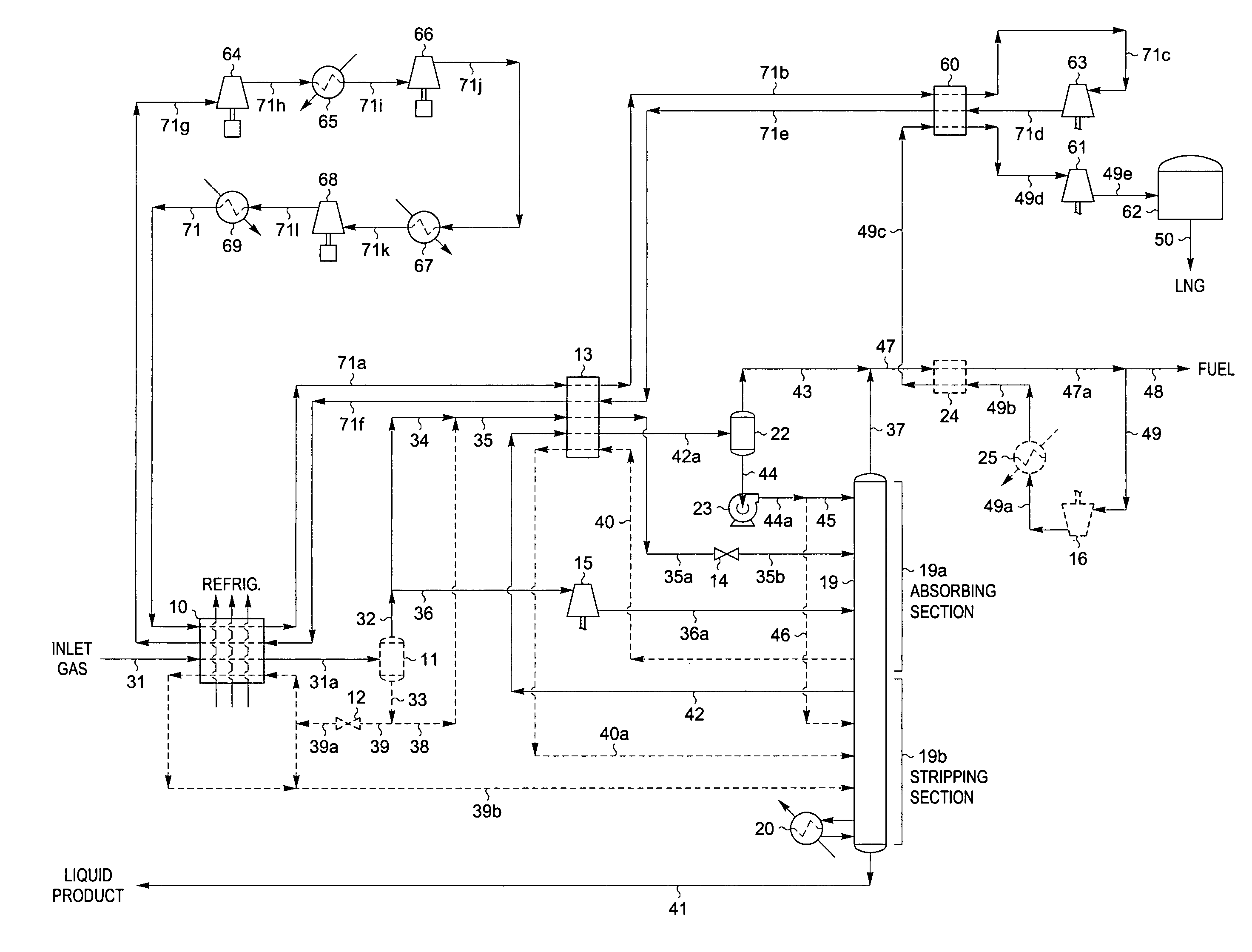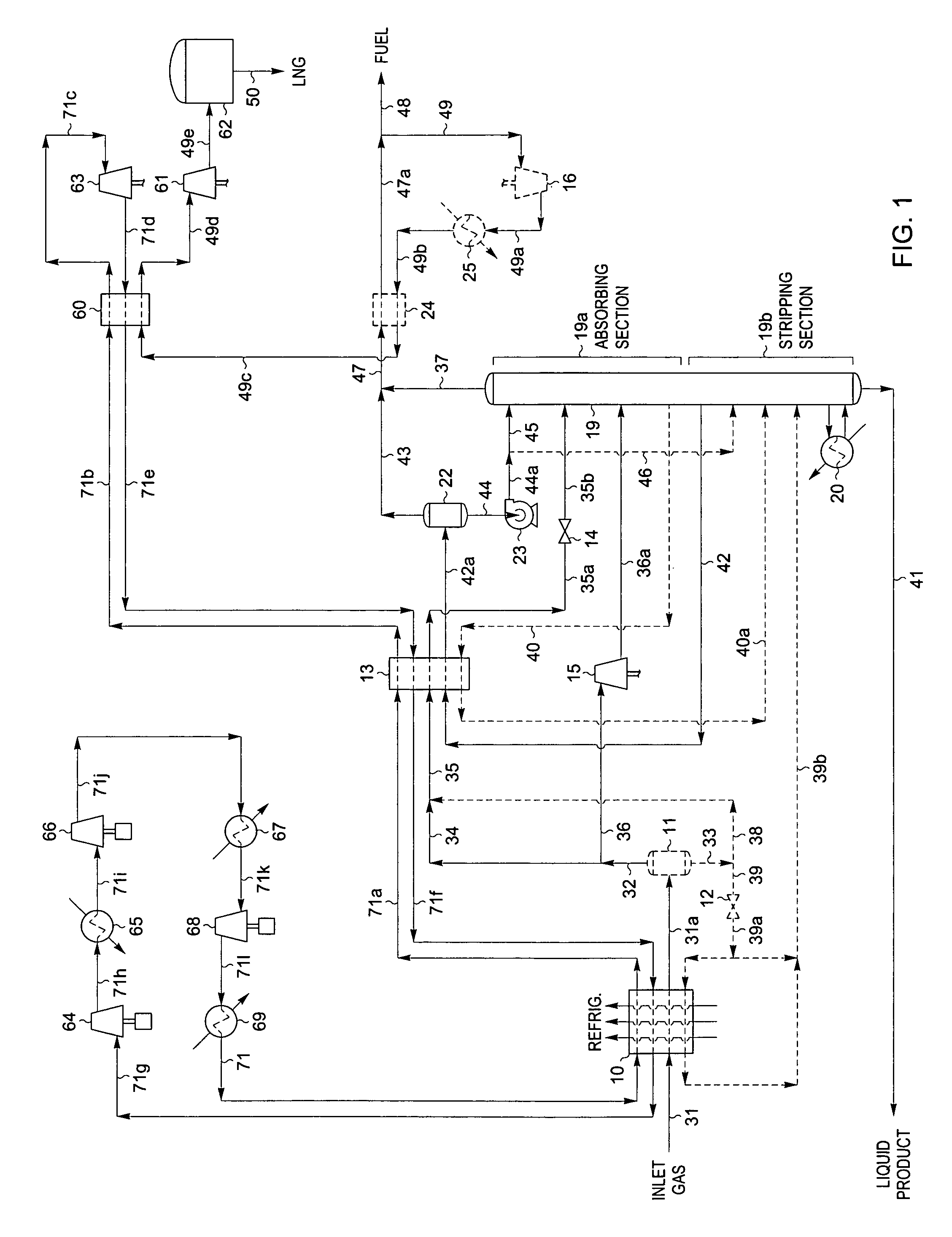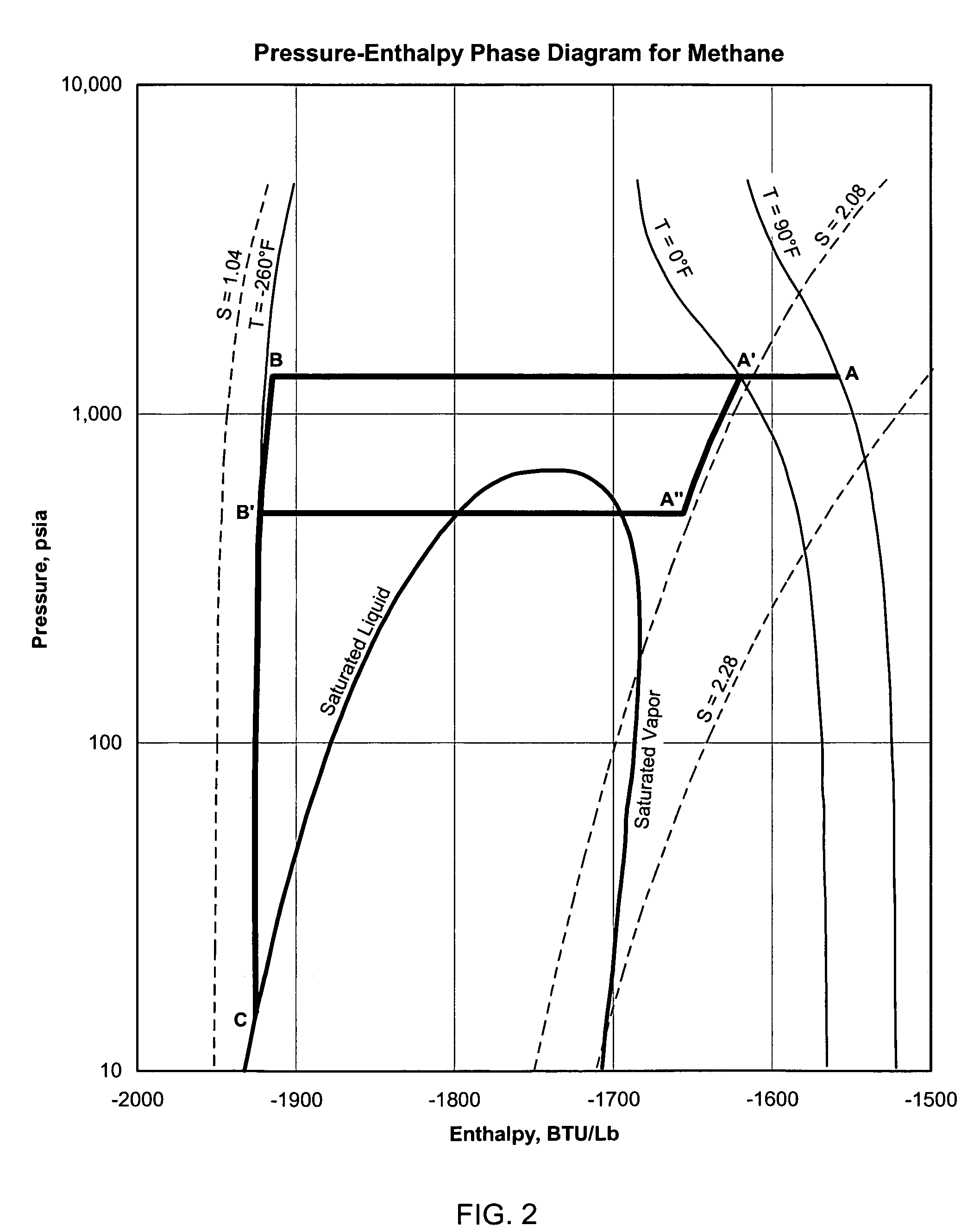Natural gas liquefaction
a natural gas and liquefaction technology, applied in the direction of refrigeration and liquidation, solidification, lighting and heating equipment, etc., can solve the problems of no pipeline infrastructure that would allow for convenient transportation, and little attention has been given to the efficiency of the hydrocarbon removal step
- Summary
- Abstract
- Description
- Claims
- Application Information
AI Technical Summary
Benefits of technology
Problems solved by technology
Method used
Image
Examples
Embodiment Construction
[0015]Referring now to FIG. 1, we begin with an illustration of a process in accordance with the present invention where it is desired to produce an NGL co-product containing about one-half of the ethane and the majority of the propane and heavier components in the natural gas feed stream. In this simulation of the present invention, inlet gas enters the plant at 90° F. [32° C.] and 1285 psia [8,860 kPa(a)] as stream 31. If the inlet gas contains a concentration of carbon dioxide and / or sulfur compounds which would prevent the product streams from meeting specifications, these compounds are removed by appropriate pretreatment of the feed gas (not illustrated). In addition, the feed stream is usually dehydrated to prevent hydrate (ice) formation under cryogenic conditions. Solid desiccant has typically been used for this purpose.
[0016]The feed stream 31 is cooled in heat exchanger 10 by heat exchange with refrigerant streams and flashed separator liquids at −44° F. [−42° C.] (stream ...
PUM
 Login to View More
Login to View More Abstract
Description
Claims
Application Information
 Login to View More
Login to View More - R&D
- Intellectual Property
- Life Sciences
- Materials
- Tech Scout
- Unparalleled Data Quality
- Higher Quality Content
- 60% Fewer Hallucinations
Browse by: Latest US Patents, China's latest patents, Technical Efficacy Thesaurus, Application Domain, Technology Topic, Popular Technical Reports.
© 2025 PatSnap. All rights reserved.Legal|Privacy policy|Modern Slavery Act Transparency Statement|Sitemap|About US| Contact US: help@patsnap.com



